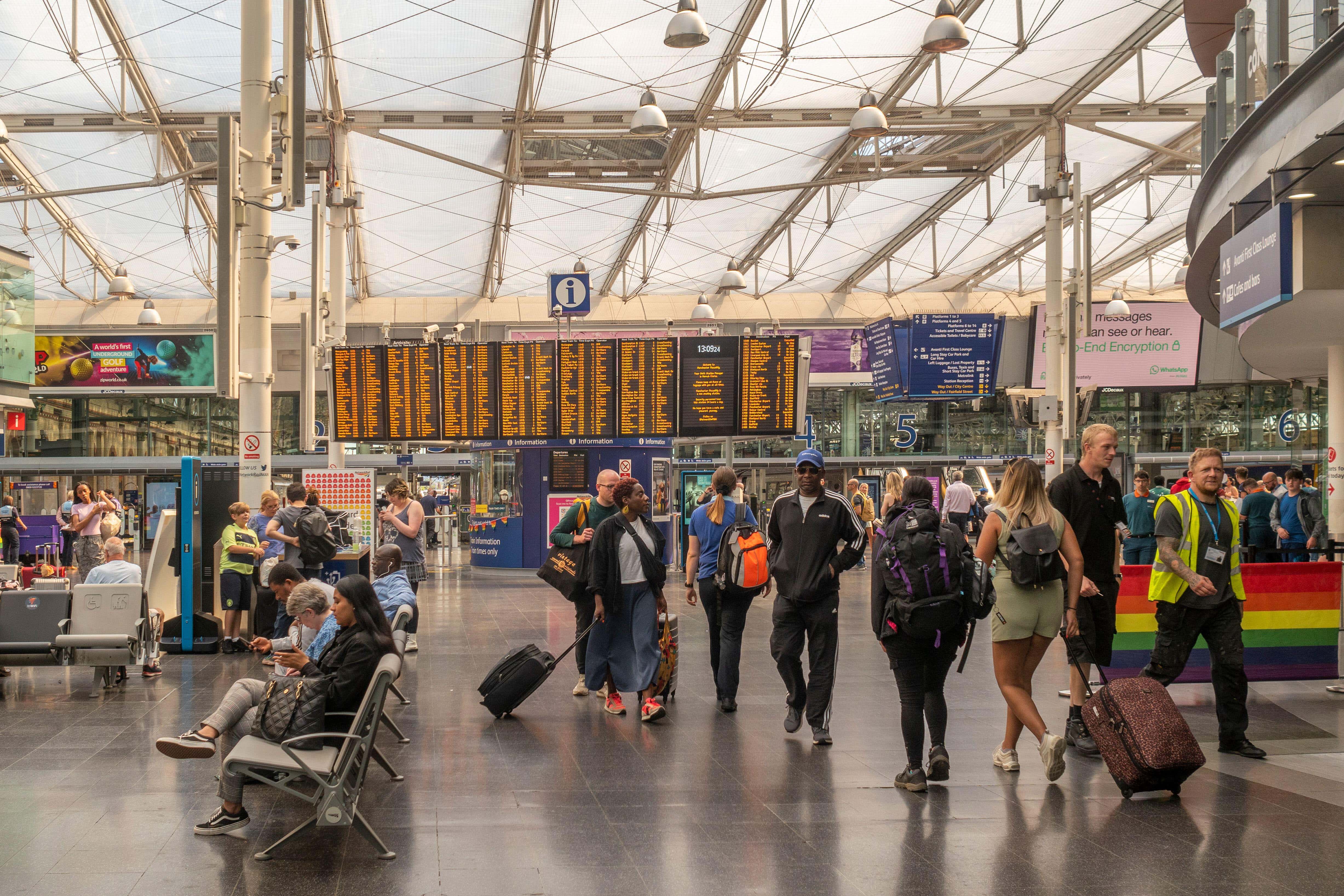Northern cities will ‘remain poorly served’ by rail, Government advisers warn
Existing rail infrastructure is a ‘constraint’ on future passenger and freight growth, the National Infrastructure Commission said.

Your support helps us to tell the story
From reproductive rights to climate change to Big Tech, The Independent is on the ground when the story is developing. Whether it's investigating the financials of Elon Musk's pro-Trump PAC or producing our latest documentary, 'The A Word', which shines a light on the American women fighting for reproductive rights, we know how important it is to parse out the facts from the messaging.
At such a critical moment in US history, we need reporters on the ground. Your donation allows us to keep sending journalists to speak to both sides of the story.
The Independent is trusted by Americans across the entire political spectrum. And unlike many other quality news outlets, we choose not to lock Americans out of our reporting and analysis with paywalls. We believe quality journalism should be available to everyone, paid for by those who can afford it.
Your support makes all the difference.Important routes between Birmingham and north-west England will “remain poorly served” by rail because of the curtailment of HS2, Government advisers have warned.
The National Infrastructure Commission (NIC) said a “do nothing” scenario north of Handsacre Junction, Staffordshire – where HS2 is now planned to stop – is “not sustainable”.
Existing rail infrastructure is a “constraint” on future passenger and freight growth, the commission’s annual review found.
The commission’s analysis suggests there are key corridors which will remain poorly served
Capacity and connectivity cannot be “materially improved” north of Birmingham without further infrastructure investment, it added.
The review found there is “a number of specific bottlenecks” between Manchester and Birmingham, stating that the West Coast Main Line is “already running at a higher intensity of operation than major fast lines in other European countries”, which negatively affects reliability.
In October last year, Prime Minister Rishi Sunak cancelled the plan to extend HS2 between the West Midlands and Manchester amid spiralling costs.
The NIC said in its report: “The commission’s analysis suggests there are key corridors which will remain poorly served, such as links from Birmingham to Manchester and the North West.”
Sir John Armitt, who chairs the NIC, said: “A long-term plan is needed to address the key connectivity, capacity and reliability issues on the rail network in the North and the Midlands.”
He acknowledged that schemes such as the Midlands Rail Hub and Northern Powerhouse Rail “might address” some connectivity concerns, but “there does remain a critical gap in the links between Birmingham, Manchester and the North West.”
Mr Sunak made his HS2 announcement alongside the publication of a Government document named Network North, setting out £36 billion of improvements to road, rail and bus services across the UK.
But the NIC found the plans need “greater specificity” regarding their “scope, cost, benefits and schedule”.
The commission highlighted the “risk of a doom loop” for local public transport, with insufficient funding leading to cuts in services, which further reduces patronage and, therefore, revenues.
The review also found that the current rate of a 30% annual increase in new public electric vehicle chargers being installed must be maintained to hit the Government’s target of 300,000 by 2030.
This will “become more challenging in later years” with the required annual total reaching around 75,000 in 2029, the commission warned.
The report said: “Government must continue to address any barriers to deployment, such as issues in securing timely connection to the electricity network due to capacity limitations and slow progress in creating more capacity.
“With less than six years left to meet its ambition, Government and Ofgem must address these barriers to deployment.”